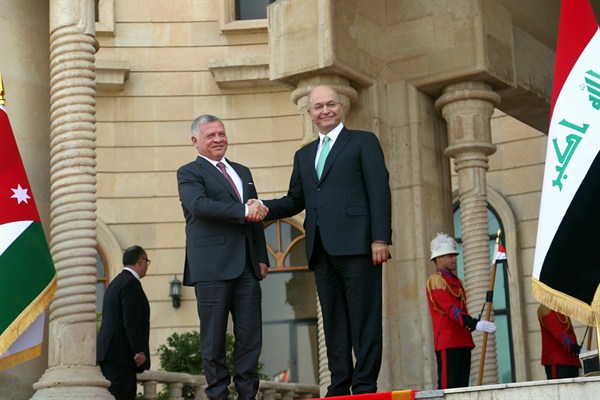Leaders from Iraq and Jordan held a summit meeting earlier this month, where they signed a slew of agreements liberalizing trade and commercial ties. The meeting, which follows a visit to Iraq by Jordan’s King Abdullah II, is part of a recent intensification in Baghdad’s diplomatic outreach as it seeks to rebuild after its brutal, years-long war with the Islamic State. In an interview with WPR, Randa Slim, a senior fellow at the Middle East Institute, discusses Iraq’s post-ISIS foreign policy priorities.
World Politics Review: What is Iraq’s interest in cultivating increasingly close economic and diplomatic ties with Jordan?
Randa Slim: Since 2011, the principal elements of Iraq’s foreign policy have been to promote the neutrality of Iraq, maintain good relations with both the United States and Iran, and improve relations with other Arab countries. As the current Iraqi speaker of parliament put it, Iraq wants to be “a meeting point for all.” To operationalize this centrist foreign policy, Baghdad has sought to mend ties with Arab neighbors. Former Iraqi Prime Minister Haider al-Abadi’s first visit outside Iraq was to Jordan, in October 2014, followed by a visit to the United Arab Emirates in December of that year. In 2017, Abadi visited Riyadh.

